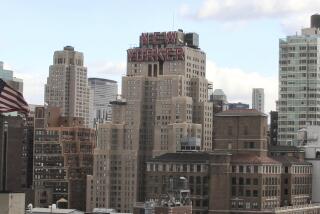Correct Nuclear Strategy
President Bush’s announced willingness to take part in a joint guarantee not to attack North Korea is an important maneuver in getting Pyongyang to end its nuclear weapons program. Even if Kim Jong Il’s regime refuses to accept anything short of a full-fledged treaty, Bush’s more conciliatory approach should win needed diplomatic support from China and South Korea.
Bush took advantage of the Asia Pacific Economic Cooperation summit in Bangkok to discuss North Korea’s nuclear ambitions with Presidents Hu Jintao of China and Roh Moo Hyun of South Korea. In August, both countries joined the U.S., Japan and Russia to present a united front, urging North Korea to end its atomic weapons development. The U.S. is correct to enlist the assistance of North Korea’s neighbors; nuclear proliferation is a regional threat, not an issue of concern only to Pyongyang and Washington.
When North Korea resisted further talks, China and South Korea urged Washington to try to woo the North back to the table by providing written, not just oral, assurance that it would not attack. Bush offered to take that extra step, although he correctly ruled out a formal treaty. Pyongyang’s refusal to abide by its 1994 agreement with the U.S. to freeze its nuclear weapons program in exchange for energy supplies and economic aid raises doubts it would live up to a treaty. North Korea first should be required to show international inspectors that it is not reprocessing plutonium and enriching uranium.
One administration official said the U.S. was willing to sign an agreement saying it had no “hostile intent” if North Korea demonstrated that it was making “verifiable progress” in dismantling its weapons program. That’s an important change from administration insistence that Pyongyang end the program before getting any economic help. The North considered such an ultimatum unacceptable, but it might end the program in stages if it saw rewards at each step.
North Korea withdrew from the Nuclear Nonproliferation Treaty last year and keeps saying it is reprocessing plutonium from 8,000 fuel rods. That may be bluff and bluster, but if true it would produce enough fuel for perhaps 20 nuclear weapons. Monday, it fired a conventional missile into the Sea of Japan in a test timed to coincide with the Bangkok summit, though not with Bush’s initiative. Pyongyang has sold missiles to other nations; because it is desperately poor and periodically racked by famine, there is no reason to believe it would refrain from selling weapons-grade nuclear material.
China provides most of North Korea’s food and oil supplies and has been instrumental in arranging six-nation talks. It should point to Washington’s flexibility as it pressures North Korea to resume talks and give up nuclear weapons in exchange for security and aid.
More to Read
Start your day right
Sign up for Essential California for news, features and recommendations from the L.A. Times and beyond in your inbox six days a week.
You may occasionally receive promotional content from the Los Angeles Times.






